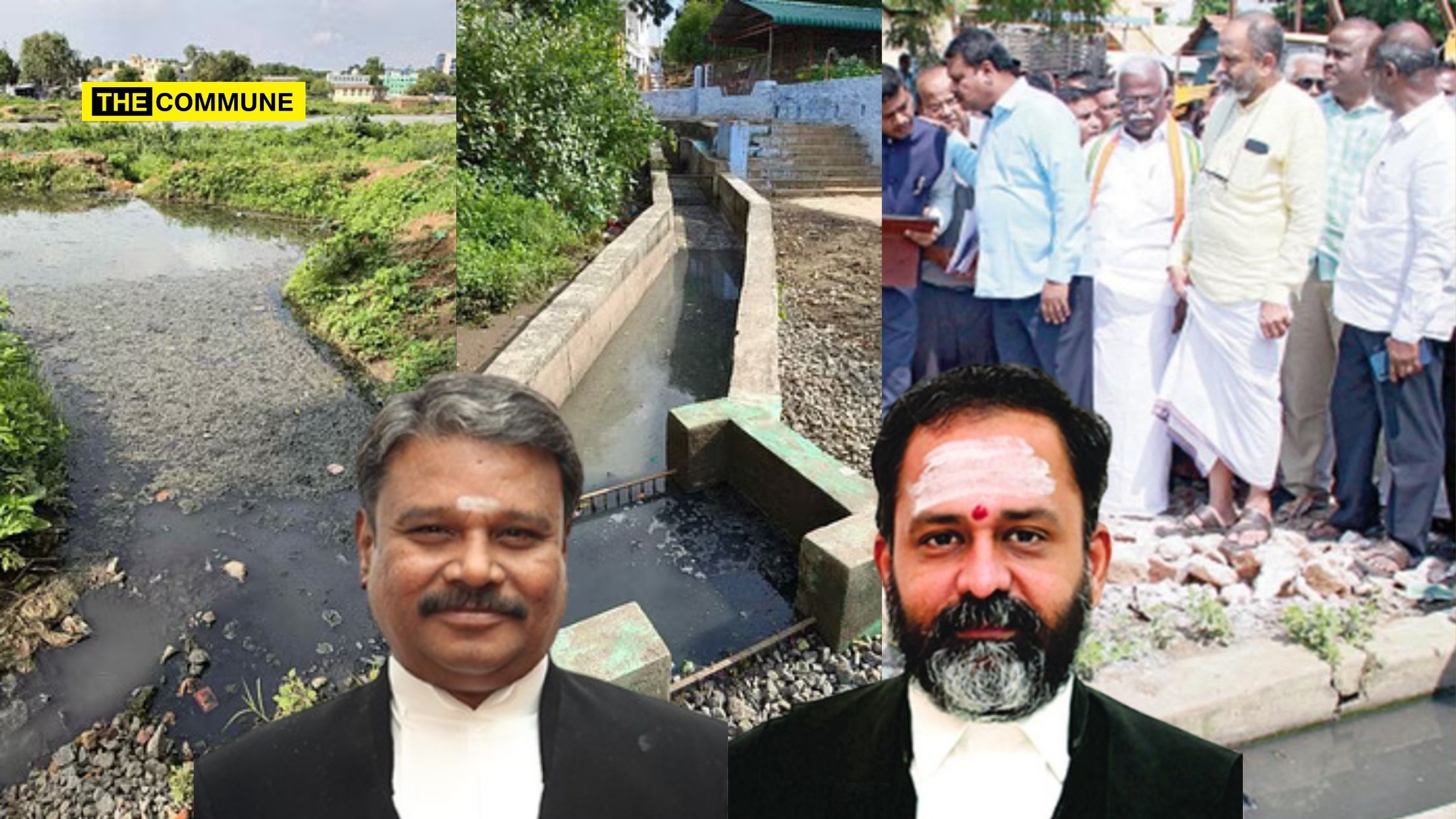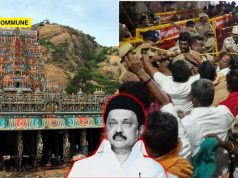
On 10 November 2024, Justices GR Swaminathan and B Pugalenthi of the Madras High Court, after conducting an on-site inspection of the Thamirabarani river, expressed their dissatisfaction with the Tirunelveli Corporation’s slow pace of cleaning the river within the city limits. The judges were particularly critical of the proposed two-year timeline for the completion of the cleanup and raised concerns about the delay.
This inspection was prompted by a 2018 petition filed by K. Kamarasu, a resident of Muthalangurichi in Thoothukudi, who sought judicial intervention to prevent further sewage contamination of the Thamirabarani river. The river is a vital water source for several districts in southern Tamil Nadu, including Tirunelveli and Thoothukudi. However, it has been severely polluted due to the unchecked discharge of untreated wastewater from residential, commercial, and industrial sources.
During their visit to the Meenakshipuram area of Tirunelveli, the judges assessed the efforts made by the city corporation to address sewage contamination. They expressed dissatisfaction over the absence of key officials and questioned the effectiveness of the current measures to prevent sewage from flowing into the river. The judges pressed for immediate action to manage the sewage issue until the completion of the underground drainage system, which is expected to take another two years.
In response to a court order earlier this year, the Tirunelveli Corporation had begun cleaning the riverbanks in anticipation of the judges’ visit. However, local residents expressed frustration that the cleanup only began shortly before the inspection. Residents of Anna Velankanni Nagar, during the inspection, filed a formal complaint regarding a nearby sewage treatment plant, which they claimed had failed to eliminate the foul odor that had been affecting their community for years.
The judges also visited a sewage treatment plant in Ramayanpatti, where they found that wastewater was not being properly treated before being discharged into the river. Despite the last-minute cleanup efforts, both activists and local residents criticized the authorities for their delayed response, arguing that the real action was only taken after the court intervened.
Several residents submitted petitions during the inspection, citing serious health concerns, especially among children, due to the polluted water and the persistent stench caused by untreated sewage. In response, the judges assured the public that further steps would be taken to resolve the issue and improve the situation in the affected areas. Tirunelveli Corporation Commissioner N.O. Sukhaputra was also present during the inspection.
During the visit, Amicus Curiae T. Arul pointed out that the Decentralized Wastewater Treatment Systems (DEWATS) installed along the river were a waste of public funds. The judges expressed their dissatisfaction with the current treatment systems, which had failed to prevent sewage from polluting the river.
In a last-minute effort ahead of the judges’ inspection, the Tirunelveli Corporation initiated a cleanup operation on 8 November, hastily addressing the sewage contamination along the riverbanks. The cleaning efforts were carried out at various locations identified as sources of pollution.
#SaveThamirabarani: High Court judges G R Swaminathan and B Pugalendhi inspected the Ramayanpatti Sewerage Treatment Plant, where sewage from 11 wards of Tirunelveli Corporation is supposed to be processed before discharge into the #Thamirabarani River. During the inspection,… pic.twitter.com/qffYZZMAJu
— Thinakaran Rajamani (@thinak_) November 10, 2024
(With inputs from TOI)




